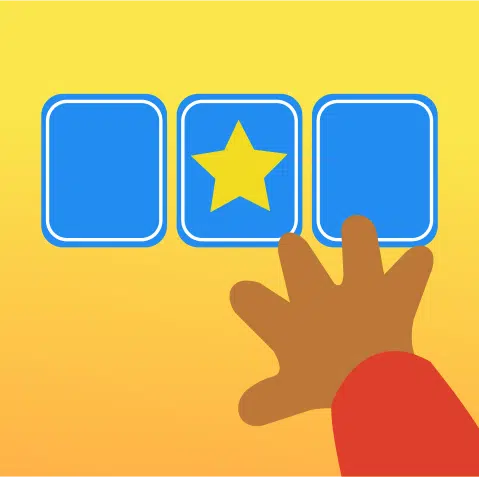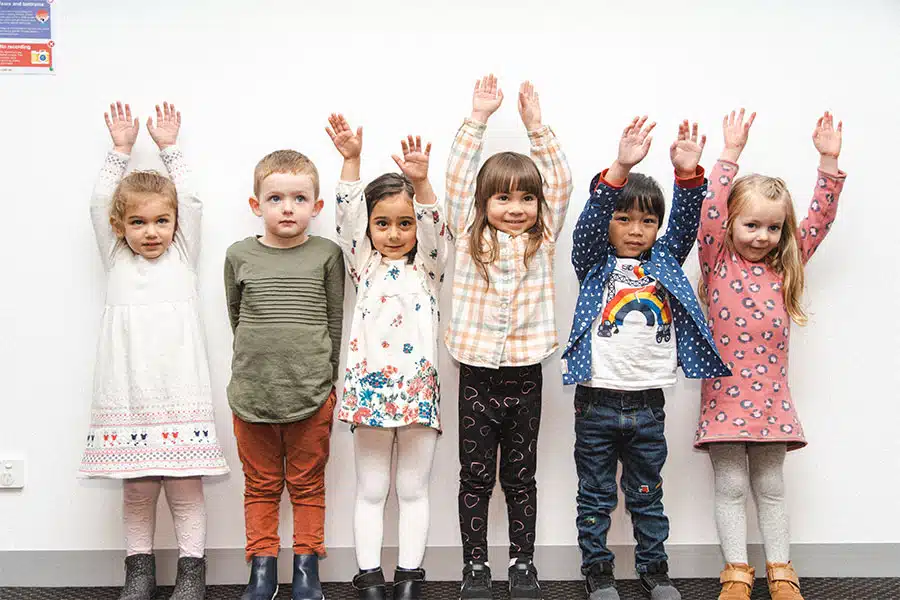Intuition Training

We actively encourage the development of a child’s trust in their own intuition, starting at six months old. This skill is often referred to as “trusting your gut” or “trusting your instincts.” Intuition plays a crucial role in the success of children throughout their learning journey.


Start early
Babies have not yet learned to question their intuition. This is why it is important to start helping children develop and retain these skills from a young age.
Learning-based play
Our intuition training games prompt children to choose between equally likely options using different forms of intuitive sensing. For example, students might be asked to find a toy that is hidden in one of three identical boxes.
Improve confidence
As children progress through our program, they can quickly—and often correctly—find the item they are looking for. We know that when children trust in their intuition, they have confidence and success in subjects like literacy and numeracy.
Intuition training empowers kids to enhance their perceptive abilities and trust their instincts. Interactive games and exercises help children recognise and interpret intuitive signals. These activities, such as making choices and interpreting sensory experiences, strengthen intuitive skills. Consequently, children become more confident, empathetic, and skilled decision-makers.
Frequently Asked Questions: Intuition Training
Intuition training involves teaching your child to trust their instincts or ‘follow their gut’. We all have an in-built guidance system and this is what is commonly known as intuition or our ‘sixth sense’.
Intuition training focuses on supporting children to be more perceptive of their surroundings. Additionally, intuition training helps to interpret feelings in different scenarios. This in turn leads to a more confident, independent child who trusts in their abilities.
Promoting intuitiveness in children has many benefits. Intuitive children are more empathetic and understand the needs and feelings of their family, friends and even pets better.
As the author of Generation Intuitive Julie Hamilton so aptly expresses:
“All of our children are born with the gift of intuition — a knowing that goes beyond reason and directly plugs them into their deepest wisdom and connects them with who they really are.”
Intuitive children grow into adults that are more aware of their authentic selves. They make better choices for themselves across their lifespan and as a result, are more likely to live fulfilling lives.
Academically, children with more finely tuned intuition often perform better in the subjects of literacy, numeracy, music and art.
Intuition training benefits children by enhancing their perceptive abilities, fostering trust in their instincts, and promoting confident decision-making. It empowers children to navigate life’s challenges with greater empathy and intuition.
Some children will show more signs of intuition than others and some can show this from an early age. Regardless of whether your child is recognised as being highly intuitive, all children can benefit from intuition training.
Everyone experiences intuitive feelings during their lifetime. Intuition training simply helps a child learn which feelings they should listen to and which ones to ignore. Intuition training can begin as early as six months of age.
Intuition training involves developing and enhancing children’s intuitive abilities through games and activities. The goal is to improve the ability to access and interpret inner guidance, gut feelings, and subconscious insights. Intuition training aims to heighten self-awareness and foster clarity and confidence in decision-making. It benefits children in various aspects of life, including personal growth, relationships with family and peers, and overall well-being.
At Shichida, our kids’ intuition training exercises involve presenting children with three equally likely options and asking them to choose between them using their intuitive sensing.
An example of this would be hiding a toy inside one of three identical boxes and asking the child to find the toy. We also may present a child with three different textured cards and ask them to interpret their feelings about what they are touching. Additionally, mindfulness and visualisation techniques assist with developing strong intuition.
These games all work together to help your child learn to trust their instincts, even when presented with multiple choices at once.
What your child will learn:

Book Trial Class
Shichida Australia’s early learning centre.